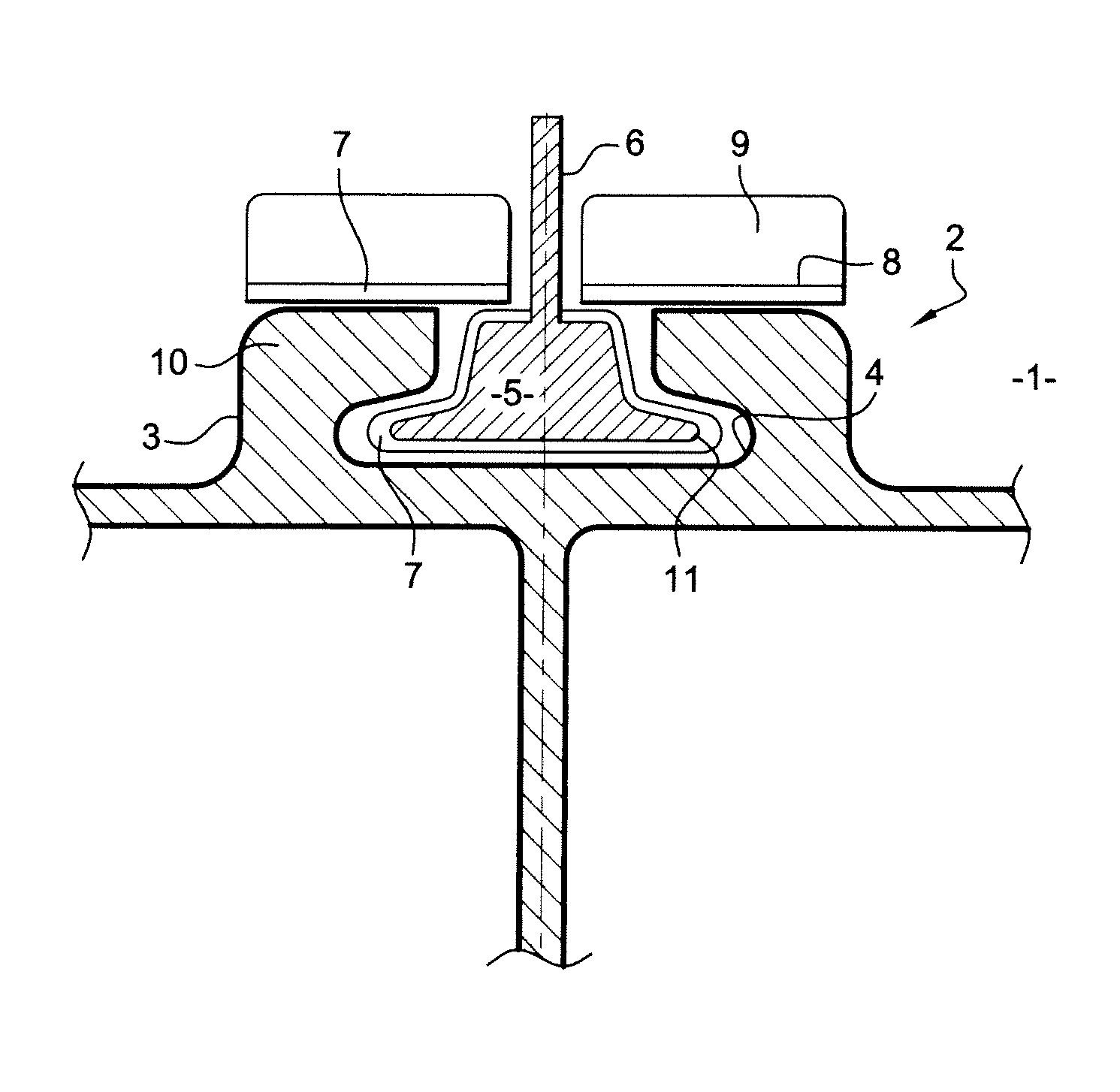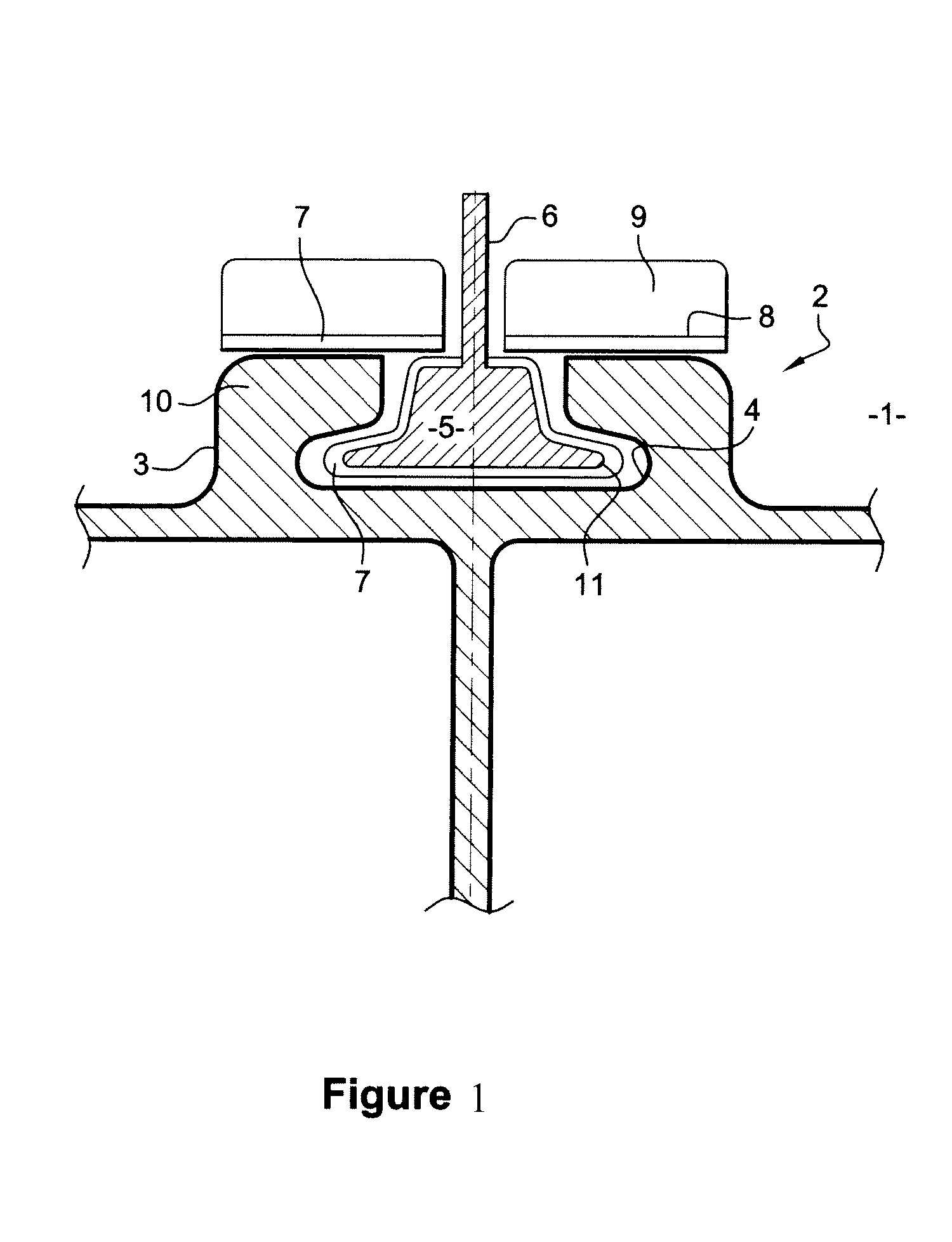Fastener assembly for transport vehicle
a technology for fasteners and transportation vehicles, applied in the direction of packaging, cargo supporting/securing components, flexible elements, etc., can solve the problems of rail and fastener assembly being subjected to an aggressive environment, rail and fastener assembly deteriorating rapidly, and scratches on the rail and/or contact wear, etc., to reduce the risk of corrosion of said rail, increase the resistance to corrosion, and reduce the risk of corrosion
- Summary
- Abstract
- Description
- Claims
- Application Information
AI Technical Summary
Benefits of technology
Problems solved by technology
Method used
Image
Examples
Embodiment Construction
[0023]The rail 1 has a head 2 to which a seat (not shown) is fastened. More precisely, the rail head 2 has a slide groove 4, or throat, in which is lodged a base 5 of a fastener device 6 integral with a lower face 8 of a seat. Of course the fastener device 6 in combination with the rail head 2 can also provide for any other element to be fastened to said rail 1.
[0024]In accordance withone embodiment, the rail head 2 is coated with an anticorrosion protective layer 3, i.e. a layer of alumina sealed with polytetrafluoroethylene.
[0025]The thickness of the anticorrosion layer 3 is preferably 35±5 μm. The layer 3 with a uniform thickness over the entire surface of the rail head 2 is obtained by a known method by immersion of the rail head 2 in a succession of baths at room temperature, with the last bath containing particles of polytetrafluoroethylene. It is possible to immerse the entire rail assembly 1 or only the rail head 2, or a more or less sizable portion of the rail 1 that carrie...
PUM
 Login to View More
Login to View More Abstract
Description
Claims
Application Information
 Login to View More
Login to View More - R&D
- Intellectual Property
- Life Sciences
- Materials
- Tech Scout
- Unparalleled Data Quality
- Higher Quality Content
- 60% Fewer Hallucinations
Browse by: Latest US Patents, China's latest patents, Technical Efficacy Thesaurus, Application Domain, Technology Topic, Popular Technical Reports.
© 2025 PatSnap. All rights reserved.Legal|Privacy policy|Modern Slavery Act Transparency Statement|Sitemap|About US| Contact US: help@patsnap.com


